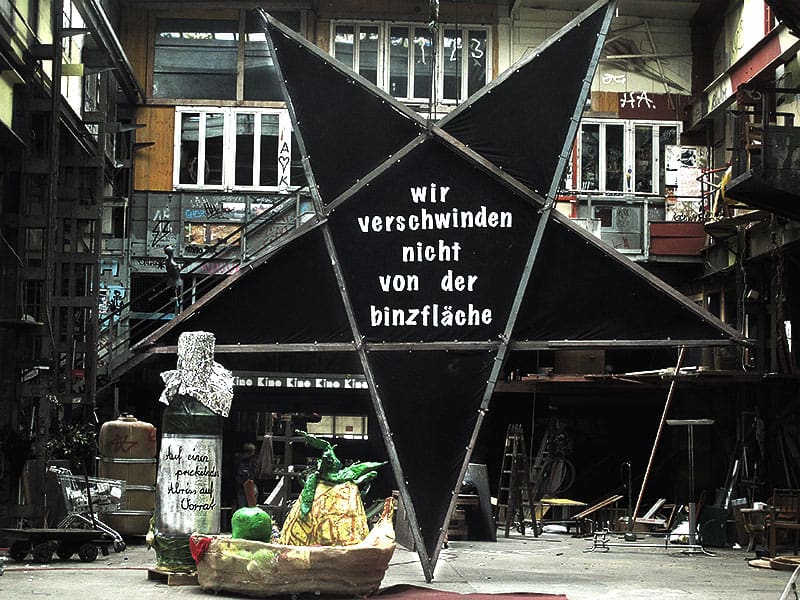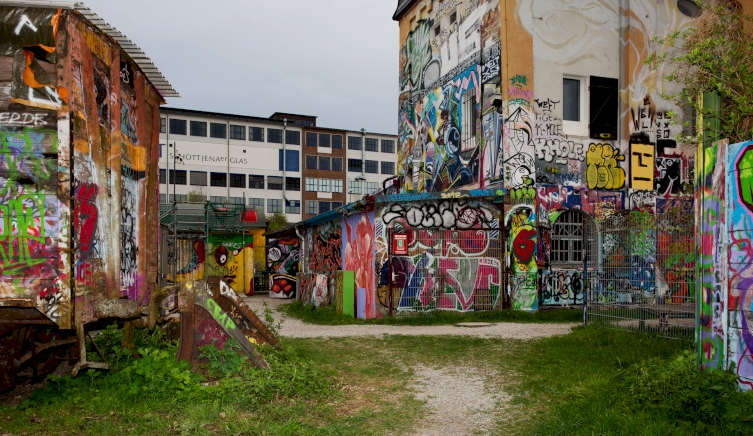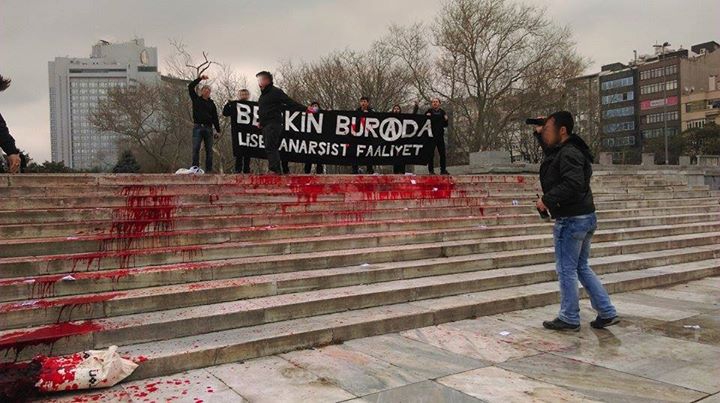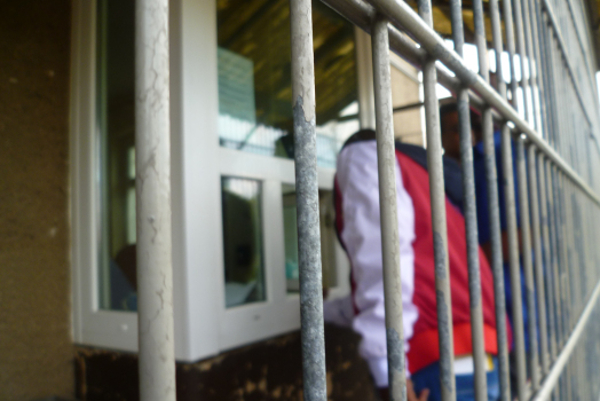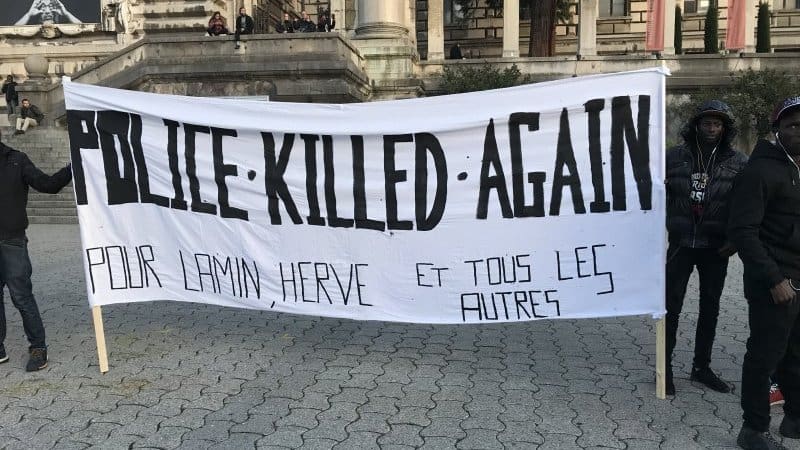Binz Bleibt Binz: “We are gone and yet we remain.”
by Antidote’s Ed Sutton
2 June 2013
(appeared in the Occupied Times of London #22, August 2013)
As tensions continue to rise surrounding housing and right-to-the-city issues in Switzerland, one squat’s struggle was derailed at a critical moment by violence. How the Schoch Family of Zurich’s Binz responded and what we can learn from their equanimity
31 May 2013 was the expected doomsday for the Schochs, the fifty-some residents of Zurich’s Binz squat. Eviction loomed, and tensions between the squatters and city authorities, stirred up by local media, had been increasing since March, when a “Reclaim the Streets” demonstration went awry and was branded the “Binz riots” by Swiss newspapers. In early May the Schochs had distributed posters and flyers exhorting sympathizers to come to Zurich and help out with ‘creative resistance’ to the coming eviction, but otherwise held their cards close to the vest.
It was in this charged atmosphere that I arrived at Binz on May 30th, the day before the planned eviction. As I walked down the driveway towards the front entrance of the large complex, it was immediately apparent that the Schochs’ mysterious preparations were in high gear. People were hauling material up on the rooftop terraces; old beat-up trucks were snorting in and out of the alley leading to a loading area in the rear of the complex; power tools and welding torches whined, clanged and hissed from inside the nearer buildings; and, most significantly, the front entrance had been completely barricaded with junk. Piles of bicycle skeletons, sections of scaffolding, kitchen appliances, wooden palettes, shopping carts, oil drums, furniture, and hanging tarps blocked even visual access to the Schoch family home. Converted vehicles I had seen used as ‘floats’ in the March demonstration — including a flatbed truck upon which a punk band had played (the drum set still sat dejectedly atop it) — formed the front line of the barricade, and oft-used protest banners adorned the morass. Binz bleibt Binz. Repression macht Aggression.
As I entered one of the large hangar-like halls, activity was ebbing. I approached a group gathered in quiet conference, their dust masks and ear protection pulled down around their necks for a break. Their worried, exhausted faces reflected none of the threatening, stubborn rebellion that had characterized the Schoch family in media reports over the preceding months.
Their current struggle was touchingly familiar, it struck me. Many of them had lived in the Binz complex for nearly seven years, in rooms and arrangements they had built with their own hands. Their stress now was the stress of leaving home: what do I take along, what do I leave behind, what do I throw away? What will become of this place? What will become of us?
Needless to say, they weren’t in the mood to chat. I left with the impression shared by the rest of the city that there would be a real spectacle at Binz the next day.
But the 31st came and went without any big news. Media outlets reported that the squatters had completely sealed off the premises and left. Deducing that the longed-for police confrontation would not come, and not eager to stand in the unseasonably chilling rain, reporters took their cameras and went home with a shiver and a yawn.
Naturally, they missed the significance of the non-event. It doesn’t fit into the media’s narrative that these ‘hard-line anarchist provocateurs’ would leave without a fight. Yet leaving without a fight was the most powerful thing they could do.
Over the seven-year existence of the Binz squat, the Schoch family made an art of defying expectations. They had fended off a previous eviction threat in 2009/2010 by meeting the local government’s demand of a security deposit, delivering eight wheelbarrows full of coins to the government administrative offices and overpaying by about ten Francs the CHF 20,000 required. They always promptly paid their water and electric bills, to the tune of CHF 3,000 a month. When they were forced to cooperate with the state, the Schochs did so on their own, creative terms.
Ignoring their routine portrayal as layabouts and outcasts with a militant ideology rejecting the society that rejected them, they consistently focused on the personal and humane tasks they had set for themselves: establishing and maintaining a self-organized autonomous space free of the profit- and security-hysteria rampant in the rest of the city, Freiraum open to anyone who wanted to contribute to communal life.
But the politics of urban free space in Switzerland have gotten hotter since the onset of the Eurocrisis, and groups that lack the Schochs’ pacifying internal decision-making process have increasingly begun responding to sharpening state repression in more violent ways. In effect, provocative actions have been taken in the Schochs’ name but not on their terms, both in March and, maddeningly, at the annual Tanz Dich Frei demonstration in Bern on May 25th. Blowback from these flare-ups made it impossible for the Binz struggle to continue in its desired form.
The Schochs’ voluntary (though surely agonizing) relinquishment of the Binz complex, born of their insistence on creative resistance and non-escalation, should be a signal to other more quick-tempered urban ‘revolutionaries’ engaged in the same battles. Their community wants nothing to do with juvenile, tit-for-tat fights with authority. They are tired of being seen as part of the problem when it is solutions that they seek..
In short, they want to survive, to continue the struggle, to fight another day. On their terms. As they put it in a statement they posted on their website on June 1st, accompanying the enormous metal sculpture they left behind at the fortified but eerily empty Binz complex: “We are gone and yet we remain…there is still a lot to do.”

